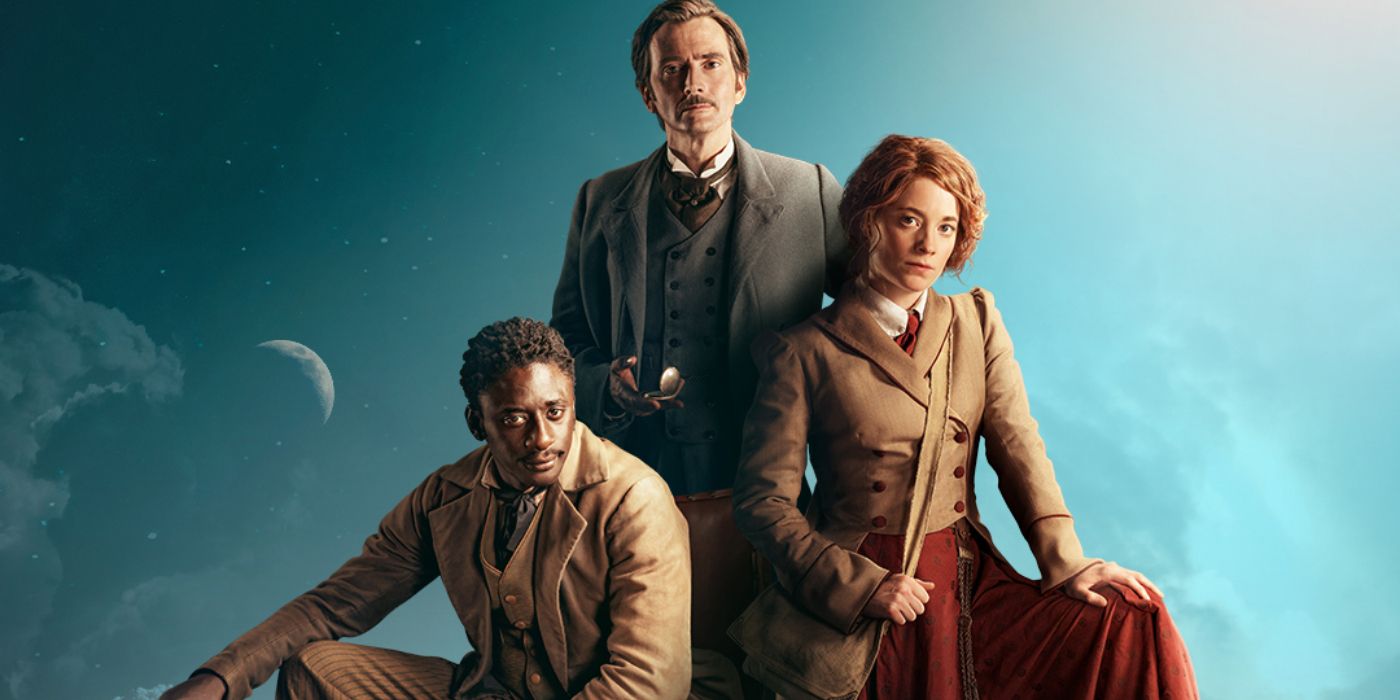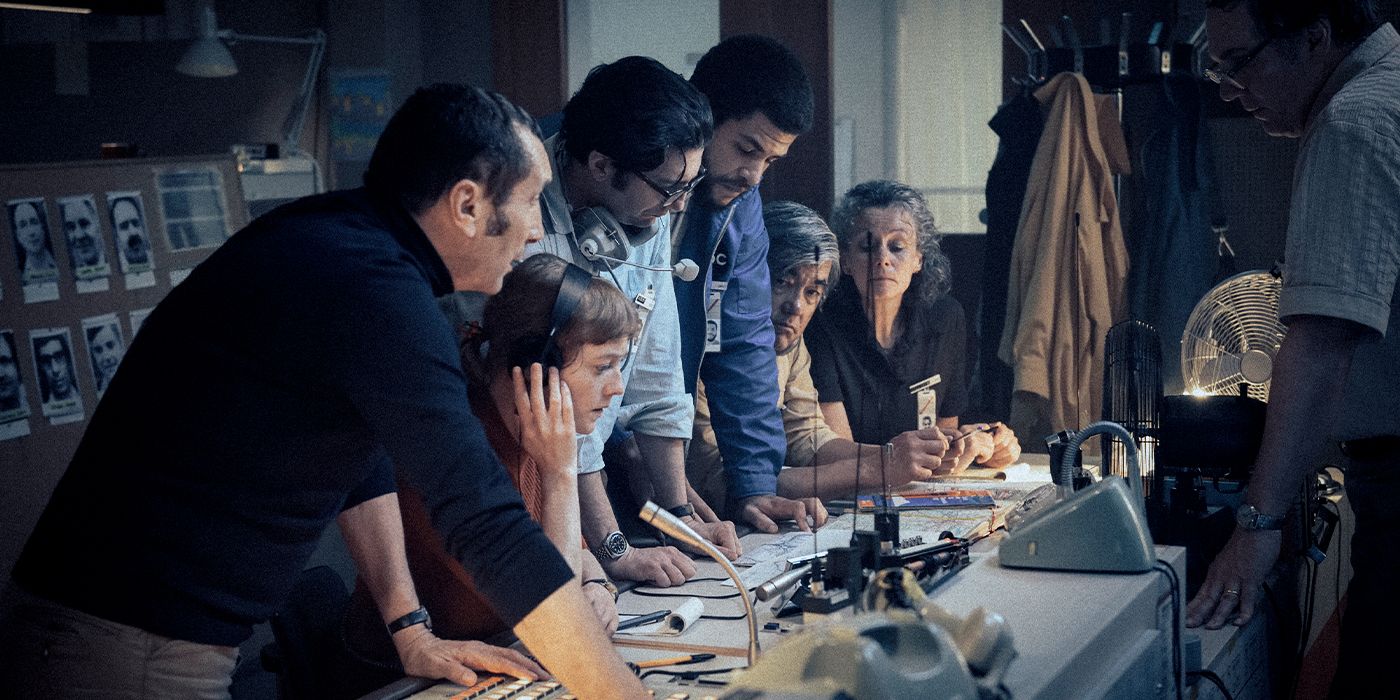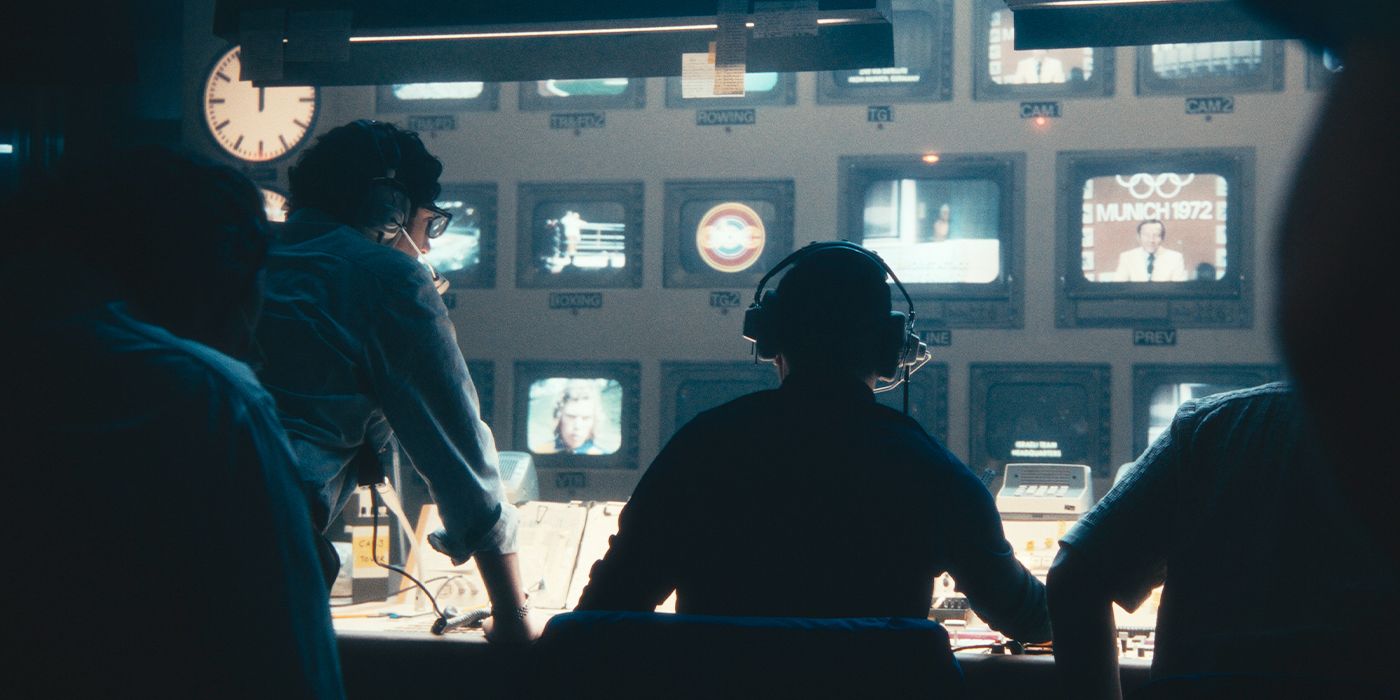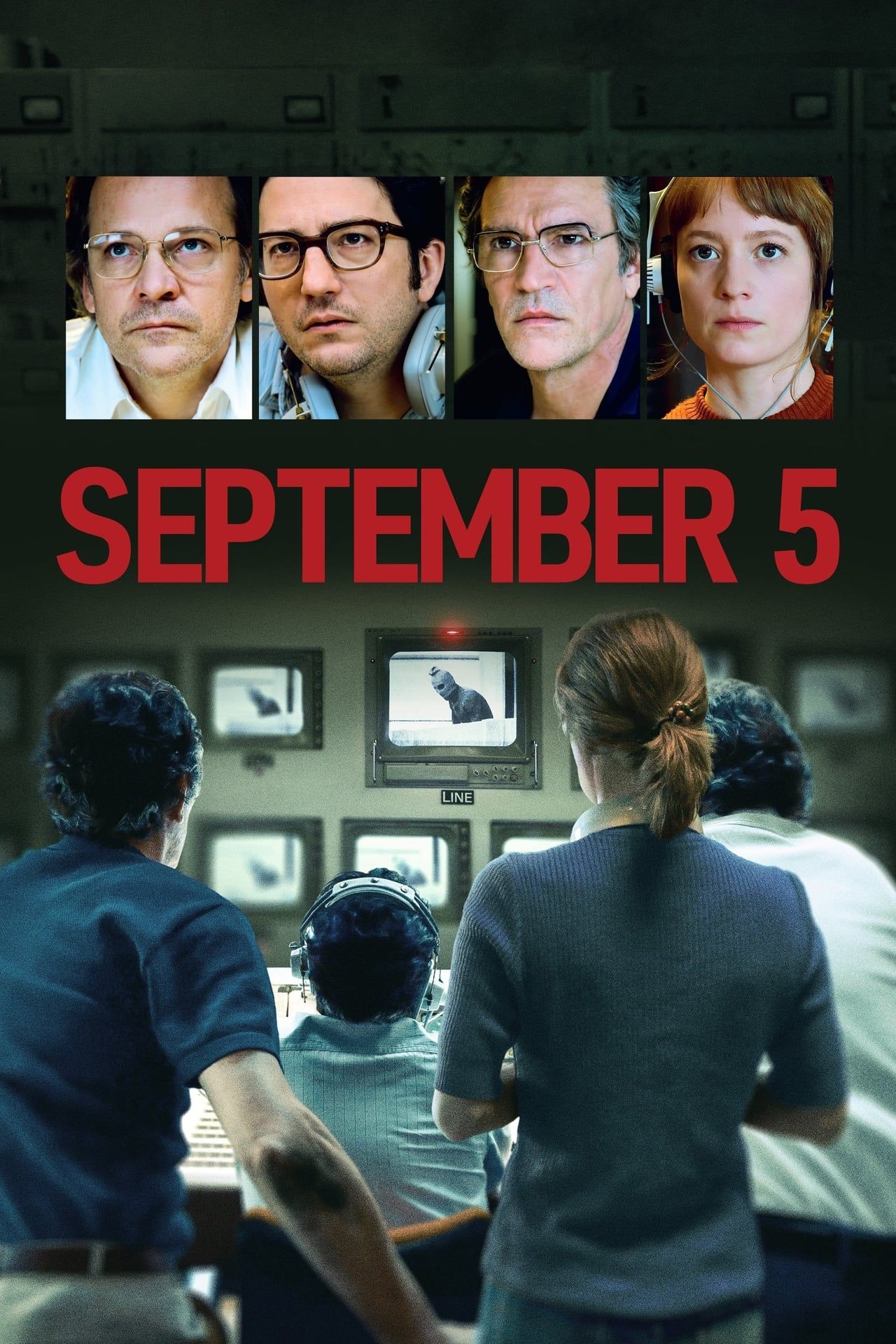
Summary
- Welcome to a new episode of Collider Ladies Night with September 5 star Leonie Benesch.
- During her Ladies Night conversation with Collider’s Perri Nemiroff, Benesch looked back on breaking into film and television with projects like The White Ribbon and The Crown.
- She also detailed her prep process for September 5 in which she plays German interpreter, Marianne Gebhardt.
Just a year after celebrating a Best International Feature Film nomination at the Oscars for The Teachers’ Lounge, which marked her first lead role in a feature, Leonie Benesch is back on the awards circuit with a filmmaking feat, Tim Fehlbaum’s unique approach to depicting the devastating events at the 1972 Munich Summer Olympics, September 5.
The film features a top-tier ensemble that includes Benesch, John Magaro, Peter Sarsgaard, Ben Chaplin and more as the ABC Sports broadcasting team in Munich, a team that must shift from sports reporting to live coverage of the Israeli athletes taken hostage, marking the very first time such an event was covered by a live broadcast. In September 5, the story is told entirely from their perspective, exploring the intricacies of high-tech broadcast capabilities and the responsibilities that come with them, a combination that’s become increasingly relevant with each passing day.
With September 5 expanding nationwide on January 17th, I got the opportunity to sit down with Benesch for a Collider Ladies Night chat to revisit her journey in film and television thus far, and to dig into the prep work necessary to accurately portray a translator in September 5.
Leonie Benesch Hit the Awards Circuit for Her Very First Film
“I didn’t know anything, and I just felt quite overwhelmed at the time.”
While many must wait years to collaborate with filmmaking legends, Benesch got that opportunity with her very first feature film. She starred in Michael Haneke’s 2009 drama, The White Ribbon.
Given Benesch didn’t have any formal training before working on the film, I asked her for a pro and a con of jumping into such a project as a blank slate, essentially. She began:
“The pro is that because you don’t know anything, you are very innocent. That is a pro because you do experience everything for the first time, and there’s a beauty, there’s a vulnerability in that innocence that I think can get lost a lot of the time. It does get lost when you do the thing over and over again. The con in this case was — it’s not really a con — I just think I was a little too young, but not actually for the filming bit. It was more that it was the first film I was ever in, and we ended up getting nominated for Best Foreign Language Film, and I was here in LA, aged 18. I knew nothing about high heels, about styling, about press. I didn’t know anything, and I just felt quite overwhelmed at the time.”
While the experience may have been overwhelming at the time, it contributed to raising Benesch’s awareness regarding something that’s quite vital for all actors. She continued:
“I think as an actor generally, but especially as a young actor, make sure that you have a team around you that you trust and who knows who you are. I’ve been very blessed with that. I’ve only started working with my American publicist team fairly recently, but again, what they bring to the table is they are really attentive to who I am, and I think that’s very important. I feel like that, sometimes, can go in directions where maybe people feel like they have to perform as someone or something they are not, or be put in clothes that they don’t feel comfortable in, and that plays a huge part. So make sure that you have a team that you like, and that knows who you are.”
Getting to Work With an Acting Hero
“I was genuinely a little starstruck from the beginning to the end of that shoot.”
In addition to having an excellent team at her back behind the scenes, Benesch has also been blessed with quite a few A+ scene partners in front of the lens. She began by highlighting one of her September 5 co-stars, John Magaro, who plays Geoff, a newer and very determined TV producer who’s challenged to step up in the biggest way imaginable.
“I did actually feel like John and I were quite similar in the way that we approached [our work]. We never talked about it. I might be completely wrong, but that’s how it felt because I think we had a very similar thing of showing up and doing the work. I don’t know if we were doing the same thing, but I felt like I’ve got a kindred spirit there.”
Benesch also took a moment to look back on a 2021 TV series that afforded her a dream opportunity, the chance to work with one of her acting heroes. She worked with David Tennant on Around the World in 80 Days.
“It was a project called Around the World in 80 Days with one of my absolute heroes, David Tennant, who is everything that I want to be when I’m grown up because he’s so committed. He is so lovely. He is so talented. He can do these huge monologues that, when you read them, you go, ‘Oh no, this is so cheesy. I don’t know how anyone’s gonna make it work.’ And then he does it as his character and it makes everyone bawl their eyes out because he finds the truth in them. I was genuinely a little starstruck from the beginning to the end of that shoot. I sometimes found it hard to realize that I was acting opposite him. It was a challenge in the best way because I’d not done comedy before, and he’s so brilliant at it.”
Benesch Is Flourishing in Film & TV Because of Two Specific People
While it’s wonderful to get to work with great scene partners and to have a need for a publicist, one only hits that point in their career as an actor via casting, and Benesch had the best possible experience in that respect courtesy of a legendary casting director in Germany, Simone Bär, who passed away in 2023.
“Simone [Bär] was someone very, very unique in the German film world. But it was international. She was an Academy member as well, and cast all the big international things that came into Germany. She found me in a kids’ agency for The White Ribbon. She saw my face and thought, ‘That might work,’ and invited me to audition. I know that Haneke also liked me, but she kept bringing me back, and it took five rounds of auditions for me to get that part. After I went to Guildhall for three years, Babylon Berlin was cast, and she did the casting. She said, ‘This part is right for Leonie,’ and I went to Berlin and it was my reintroduction to coming back into the industry after having gone to drama school for three years, was Babylon Berlin. She then was the one who told Ilker Çatak, the director of The Teachers’ Lounge, that maybe this was the opportunity to have my first lead in a film.”
Along with her casting partner, Alexandra Montag, Bär helped Benesch carve a path for herself in film and television. “They’ve always kept me, over the years, in their minds, and they’ve truly shaped my career that way.” Benesch dubbed September 5 “the last gift [Simone] gave me.”
Learning How to Play a Translator
“That is a very specific and unique skill.”
6:28
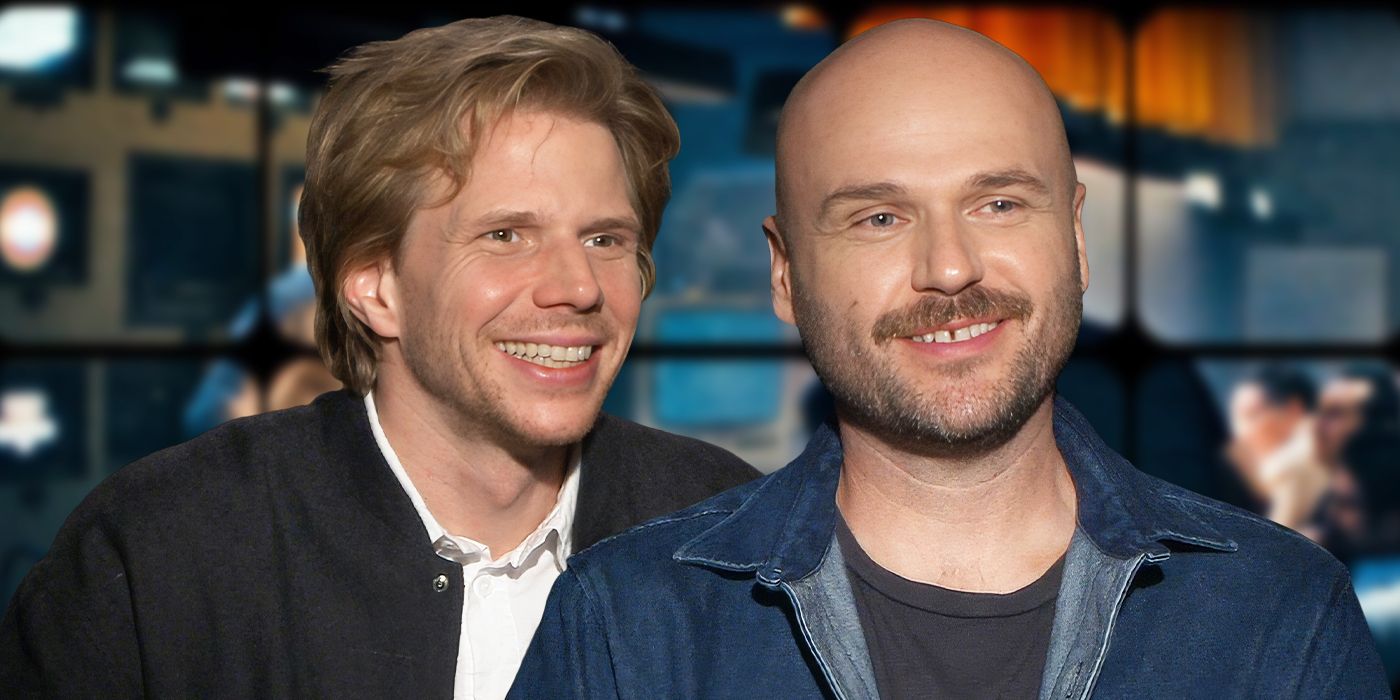
Related
Director Tim Felhbaum and producer John Ira Palmer discuss the unique way they filmed this recount of the 1972 Munich Olympic hostage crisis.
Benesch certainly makes the most of that last gift. Even amidst a stellar ensemble, she’s a clear standout playing Marianne, an indispensable member of the ABC Sports team in Munich as the operation’s translator.
“I love when there’s something that a character can do that I can’t do. Marianne Gebhardt is a translator. I speak two languages fluently, obviously, but I don’t know how to simultaneously translate. That is a very specific and unique skill, so I met up with a translator, someone who regularly translates at the UN, and picked her brains about what that place is she goes to when she’s in that zone. I’m sure you’ve seen these people in press rooms, people who do simultaneous translating. They’re not robots, but they switch into this meditative state where their mouth moves and they say words that they just heard in another language while the person is still talking. It blows my mind, so it was very interesting to talk to this person in Berlin for quite a lot of time.”
Benesch offered up a few more curious bits of information she learned from this translator:
“What blew my mind, because I did ask her, I was like, ‘How many secret meetings do you sit in? What kind of NDAs do you have to sign,’ and all that stuff. Then I remember asking her if there are sometimes moments when she is so busy translating that maybe she doesn’t know what she just said, and she said, ‘Yeah, that can happen.’ She is so concentrated on getting it right that she will leave the room like, ‘I don’t know what that was about.’ I didn’t use that, obviously, for Marianne because she’s very much aware of this and it’s not simultaneous translating on a level like a diplomatic setting, but I just thought there’s something interesting in that meditative state that they have to be in to get it right that I really liked for Marianne in terms of being a very, very focused person.”
This Key ‘September 5’ Scene Had to Change
“We wanted to trust that we were making the film that we thought we were making, and not mistrust the audience at the end.”
Going into filmming September 5, Benesch suspected the scenes involving the simultaneous translating would be most challenging for her. However, that didn’t wind up being the case. She explained:
“I went into it thinking that the simultaneous translating was going to be the trickiest one, but that turned out to be quite easy. But then the one that was very tricky was the final scene between Marianne and Jeff where they attempt a conversation about what happened that day, because it was written slightly differently, and we’d filmed it earlier on. I think Tim, John, also John Ira Palmer, our producer, and I all knew that it wasn’t right. We were like, ‘Does this work?’ It didn’t feel right. And John and I kept seeing it popping back up on the film, like, ‘Oh no! That scene … We’re gonna have to work through that.’”
When that day finally came, Benesch and Magaro were able to pinpoint what needed to happen to strengthen the scene; they needed to trust their audience.
“Eventually the day came when we shot it, and it was a really difficult discussion about these two people [and] what kind of words would they find. Because, the way it was written, John and I felt like it was slightly overwritten and explaining the film at the end of the film, and we really wanted to avoid that because we felt like we wanted to trust that we were making the film that we thought we were making and not mistrust the audience at the end, so reduce the text and have it play out more by what was not said than what was said. That was a difficult day, but also, Tim is a collaborator, and he’s really open and really intelligent and really wants to solve it, and those were really difficult discussions we were having, but it’s thanks to John being an amazing scene partner and Tim being a wonderful, attentive director that we we ended up, I think, finding the right tone for that scene.”
Looking for even more on Benesch’s experience working on September 5, The Crown, Babylon Berlin, and more? You can watch our full Collider Ladies Night conversation in the video at the top of this article, or you can listen to the interview in podcast form below:
September 5 is now in theaters nationwide.


